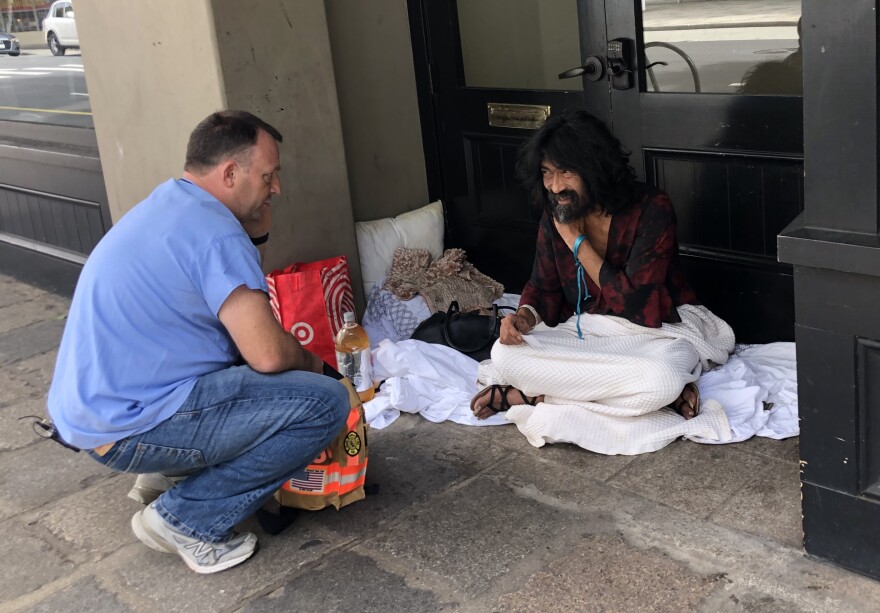People living on the sidewalks is hard to get used to, yet Hawai‘i residents on every island see it every day. Recently back from a statewide homeless tour, Lt. Governor Josh Green says two new initiatives on O‘ahu hold promise for making a difference. H4 services and the Kauhale housing initiative would dovetail with successful programs already underway.

“$1250 bucks for the ambulance, $1600 for the ER, that’s before doing anything,” says Lt. Governor Josh Green. An emergency room doctor, Green is well aware of the costs racked up by every visit. He says another couple of hours in the ER or an overnight stay, could easily run $4-$5 thousand dollars.
“And it’s constant. If it rains, everyone goes, if people have staph infections, everyone goes, people have a headache or the flu, they go, instead of to H4 where it might be $30 bucks. Which we waive by the way because it’s funded by the philanthropists.”
HMSA, Island Hospice, and Queens are the major funders behind H4, a new clinic and housing center that got the final go-ahead from the City Council last week. Green estimates the healthcare sector could save $50 to $80 million dollars annually with this 24/7 alternative to emergency rooms.
As for moving large numbers of people off the street? That’s where the Kauhale model comes in. This initiative would place established communities into permanent housing together. State Homeless Coordinator Scott Morishige says people have deep relationships in encampments and some are quite organized.
"So I think the kauhale concept is about how can you replicate that sense of community not in an encampment, but in housing."

Morishige says the chronically homeless do need housing with wrap around social services, but the singles an couple expected to be served by the Kauhale villages are a different sector.
"For this population I think the kauhale is focusing on that type of support I think they need is social support," says Morishige. "So there is not that sense of loneliness lot of times people feel when they’re placed in an apartment by themselves."
According to Morishige, the goal really is to provide a continuum of options, and a recently approved law is aimed at some of the most visible street concerns. ACT, Assisted Community Treatment, allows authorities to more easily step in with treatment for severely mentally ill homeless. Green acknowledges there is push back on that issue, because of civil rights concerns, but ACT is meant to address a chronic, visible sector of the homeless who could soon be served by the H4 facility.
Morishige says Hawai‘i’s projected continuum of care starts on the street, and includes H4 style emergency clinic and services, Housing First, Kahauiki style alternatives for families, Kauhale villages for singles and couples, traditional affordable rentals, and public housing.

Morishige stresses, “The only way we’re going to resolve this is to keep housing as our focus. I think we have to have this range of options that we’re working to maintain.”
Green says just putting shelter over someone’s head, cuts the state’s costs by 43% minimum. That allows investments in other things and frees up public space.
“That’s why If you have kauhale in each region, you can say, Please live there, you will self-govern, you will be out of the elements, you will have some normalization of live, it can be culturally appropriate to your community, but you will be off the beach.
Lt. Governor Green acknowledges there are no quick or easy answers out there.
“I say to everybody out there, the more that the communities feel mutual respect for each other, we are able to get successes. You don’t have to take any nonsense if someone is bugging you but if you can be compassionate, we are trying to bring significant help.”
Asked how people can volunteer, the LG offered his cell number, 808-937-0991. Or people can check H4hawaii.org.




